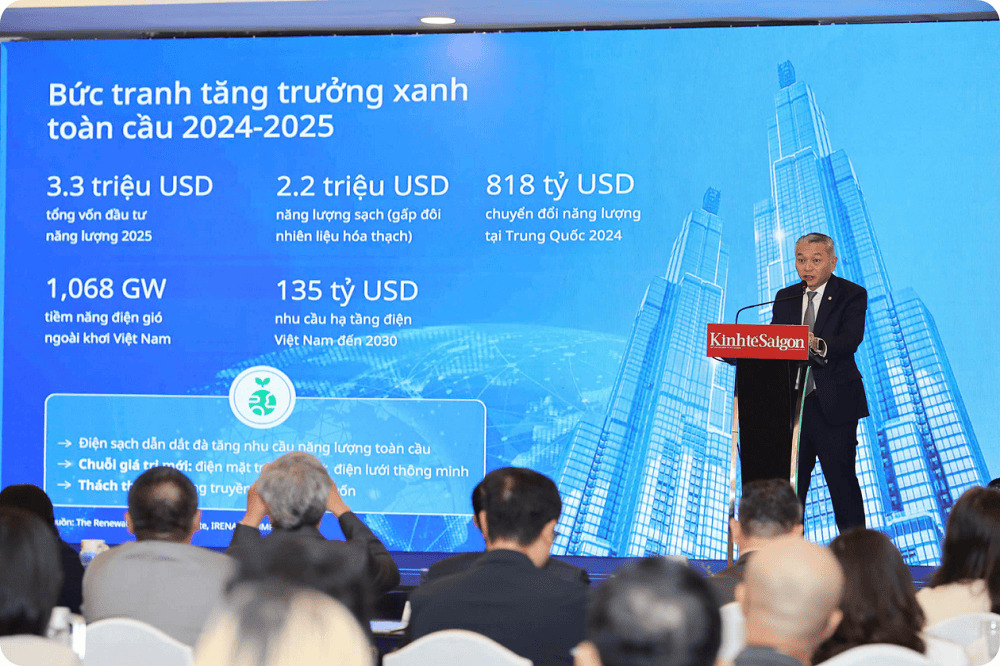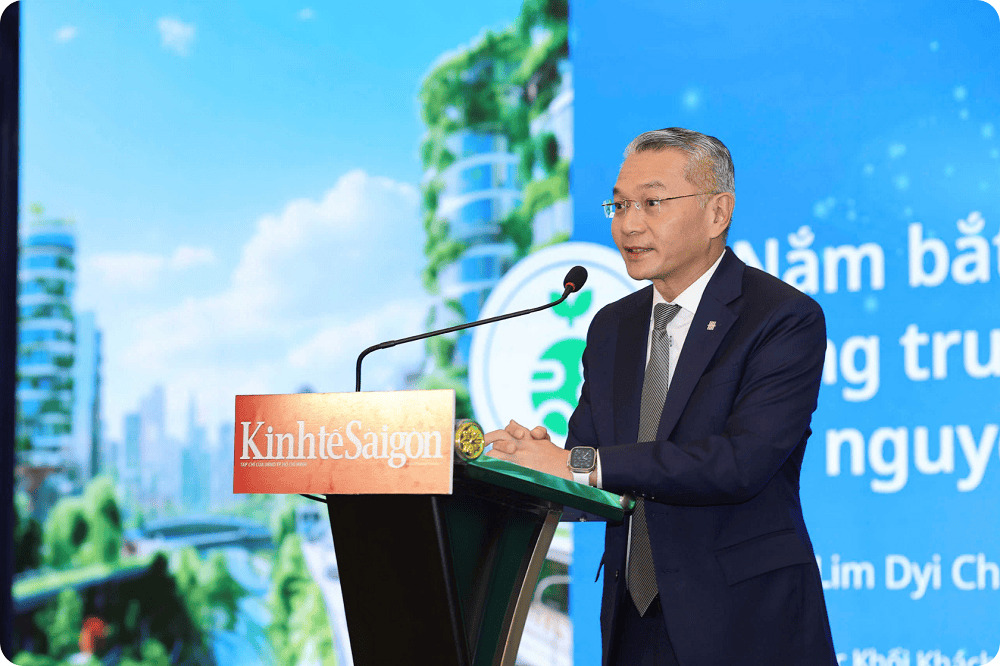You are now reading:
UOB Vietnam at Green Economy Forum: Enabling businesses to capture green growth opportunities
you are in Wholesale Banking


You are now reading:
UOB Vietnam at Green Economy Forum: Enabling businesses to capture green growth opportunities
At the Green Economy Forum 2025 hosted by the Saigon Times Group, Mr. Lim Dyi Chang, Country Head of Commercial Banking, UOB Vietnam, shared perspectives on how businesses in Vietnam can position for success in the green economy and how UOB is supporting this transition.
The forum, themed “A New Era for Green Economy Development”, convened more than 120 participants, including government representatives, senior business leaders, industry associations, and sustainability experts. Over 20 media outlets, including national television, covered the event, reflecting its role as a major platform for dialogue on sustainable growth.
Global and Regional context: Sustainability as a competitive imperative
In his keynote address, “Seizing Business Investment Opportunities in a Greener World”, Mr. Lim placed Vietnam’s green transformation in the context of global capital flows, regional shifts, and the private sector’s readiness to lead.

Mr. Lim Dyi Chang, Country Head of Commercial Banking, UOB Vietnam, at the Green Economy Forum 2025 hosted by the Saigon Times Group
He noted that sustainability has become a defining factor for investment flows, supply chain structures, and long-term competitiveness. Despite a projected slowdown in global GDP growth to about 2.3 per cent in 2025 and rising geopolitical headwinds, clean energy investment continues to accelerate.
“Total energy investment this year is expected to reach USD 3.3 trillion, with clean energy attracting more than twice the capital of fossil fuels,” Mr. Lim said. “Asia is leading this shift. Vietnam possesses significant offshore wind potential, recognized among the most promising in the region, along with a clear roadmap for USD 135 billion in power infrastructure investment by 2030”.
Adaptability and sustainability are now essential to competitiveness in both domestic and international markets.
Vietnam’s new phase of green growth
Vietnam has entered a new stage in its green transformation. Resolution 68 positions the private sector as a key driver, with incentives for SMEs and clear targets for leading firms by 2030. The introduction of the Green Taxonomy, covering 45 sectors, provides greater clarity for both lenders and investors.
“These frameworks reduce uncertainty, enhance transparency, and unlock both domestic and international green capital”, Mr. Lim said. “For businesses, they de-risk projects and make business plans more financially viable. Firms that align early with these frameworks will gain first-mover advantages in accessing green financing”.

Mr. Lim Dyi Chang highlights how Vietnam’s new green frameworks enable greater transparency and financing access
Emerging opportunities across sectors
Mr. Lim highlighted several priority sectors where green growth opportunities are materializing:
“These sectors reinforce one another”, Mr. Lim noted. “Renewable energy underpins manufacturing, EV growth fuels recycling demand, and industrial parks require shared green utilities. The opportunities are integrated and mutually supportive”.
How businesses can capture opportunities
To position for success, businesses should take practical steps:
UOB’s role and commitment
As a regional financial institution, UOB plays a catalytic role in enabling green growth by channeling capital into sustainable projects. Across ASEAN, UOB has mobilized USD 41 billion in sustainable financing.
In Vietnam, UOB has supported 19 green projects in sectors such as aquaculture, agriculture, renewable energy, and sustainable manufacturing. By 2025, UOB aims for at least 30 per cent of its new loans to medium-sized enterprises in Vietnam to be sustainability-linked.